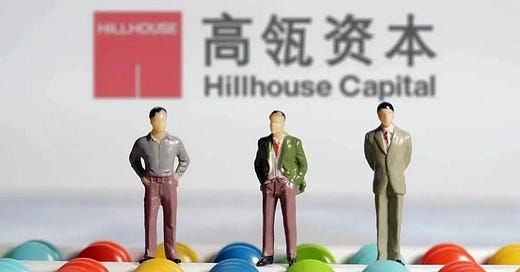
Hillhouse Capital Denies Liquidation Rumors, Losses on Chinese ADRs
On Tuesday, investment institution Hillhouse Capital denied the rumor that the company had been liquidated after losing over over $30 billion with its Chinese ADR holdings.
A spokesperson for the company reassured their financial position, “According to the latest 13F report released by U.S. Securities and Exchange Commission’s website (SEC), our fund has a total position of about $6 billion in U.S. stocks, so it is impossible to lose $30 billion.”
According to the SEC, HHLR Advisors under Hillhouse Capital held 76 stocks in the U.S. stock market as of the end of the Q4 2021, with a total market value of about $6.472 billion.
Founded by Zhang Lei in 2005, Hillhouse Capital focuses on long-term structural value investment and industrial innovation, covering the fields of life and health, hardware technology, consumption and retail, carbon neutrality, enterprise services and others. Its investment spans early VC, private equity investment, listed company investment and M&A investment.
The investment firm continues to invest its resources in advanced technology fields, and its investment in hardware and cutting-edge technology accounts for more than 80% of its whole investment layout. Enterprises invested by Hillhouse Capital include JD.com, ByteDance, Meituan, CATL and others. At present, the firm has offices in Beijing, Hong Kong and Singapore.
At the beginning of 2021, Hillhouse Capital established the first “Green Fund”. Industry and Innovation Research Institute of Hillhouse Capital and Beijing-based Institute of Finance and Sustainability (IFS) jointly released the first carbon neutrality report in the industry. Hillhouse Capital has accumulated a scale of nearly 50 billion yuan in the field of carbon neutrality. In February 2021, the company officially joined the United Nations Organization of Principles for Responsible Investment (UNPRI) to promote the sustained and healthy development of green investment in the industry and support the green transformation of China’s economy.











